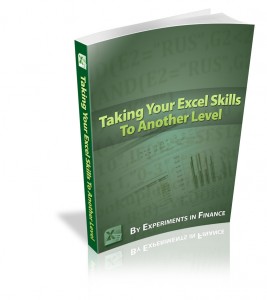It seems one type of investment that’s increasingly offered are so-called target retirement funds, also known as age-based funds, or lifecycle funds. Smart Money and other leading personal finance magazines have written many articles recently touting the benefits and growing popularity of these funds. But I disagree with them, and here’s why:
- They add an additional layer of complication: There are more mutual funds today than there are actual stocks to invest in (this can be corroborated by a 2003 speech given by Vanguard’s Founder). That means that on average, more mutual funds are investing in the same stocks. If target retirement funds are then investing in mutual funds, aren’t you essentially buying an indirect form of an indirect form of a stock? Why add an extra layer of indirectness and potentially an extra layer of costs?
- There’s less transparency: Some of these target retirement funds “trade” using a symbol (for example, Fidelity Freedom Funds all take the form of “FFFFx”), but some of them, like the ones offered by my previous employer, don’t have a trading symbol at all. I’m not one to constantly watch my investments, but suppose once a year I’d like to make sure my investments are performing well versus the market or some other benchmark such as a plain-jane mutual fund. I certainly can’t do that as easily as I could with mutual funds or stocks.
- You might be less diversified than you think: These funds tout their ease of use by implying that you simply pick a date for retirement and they’ll do the rest: just buy and forget. Suppose you invest in one of Fidelity’s Freedom Funds. These actually invest in Fidelity’s own mutual funds, and if you click on their “holdings” tab they’ll list which ones. But it’s hard, if not impossible, to tell your asset allocation mix and what you really own without then digging into what each fund owns, and trying to determine what percentage of those holdings are in your portfolio. Some studies have shown that target retirement funds don’t necessarily perform as expected.
I realize that most people want to take it easy and not worry about money matters and investments. I come from the philosophy that you really have to be accountable and assertive about the investment choices you make, because after all, you worked hard to earn it, and you will always be the person with your own best interests in mind. Investing, like anything else worth doing in life, takes time and energy, and autopilot or “buy and forget” ’til you retire just sounds like dangerous advice to me.
I believe there are good mutual funds out there, but these target retirement funds just simply aren’t for me because in the end, they take away too much control and just plain aren’t transparent enough. What do you think? Thanks for reading.
***************************************************
Look Good at Work and Become Indispensable Become an Excel Pro and Impress Your Boss

***************************************************


Chris
“it’s hard, if not impossible, to tell your asset allocation mix and what you really own without then digging into what each fund owns, and trying to determine what percentage of those holdings are in your portfolio”
Have you see Morningstar’s (free) X-Ray tool?
For some funds (Vanguarg Target Retirement Funds, e.g. VTIVX), you can easily get a pretty good picture of the underlying allocation of this fund using the Morningstar X-Ray tool.
What is scary though, is that when I try to “X-Ray” one of the Fidelity Funds (e.g. FFFHX) the allocation comes up as 100% “not classified”. Yikes! :-)
Ricemutt
I’m not familiar with the X-ray tool, but I’ll have to check it out. Thanks for letting me know about it!
Consumerism Commentary: A Blog About Personal Finance
Carnival of Personal Finance #53…
Welcome to the anniversary edition of the Carnival of Personal Finance! What a year it has been. The first Carnival of Personal Finance was posted on June 20, 2005. To celebrate the Carnival’s first birthday, I asked participants to submit two…
Buford Twain
Sorry to be late to this party.
I think the Vanguard target retirement funds are OK.
They have a reasonable blend of domestic, foreign, emerging markets (tiny share) index funds and bonds, similar to what folks like William Bernstein (The Four Pillars of Investing) and others suggest. So, for people who really don’t want to worry about asset allocation, stock picking or rebalancing (i.e. 99.9% of people?) they are pretty good. The fees are reasonable as well.